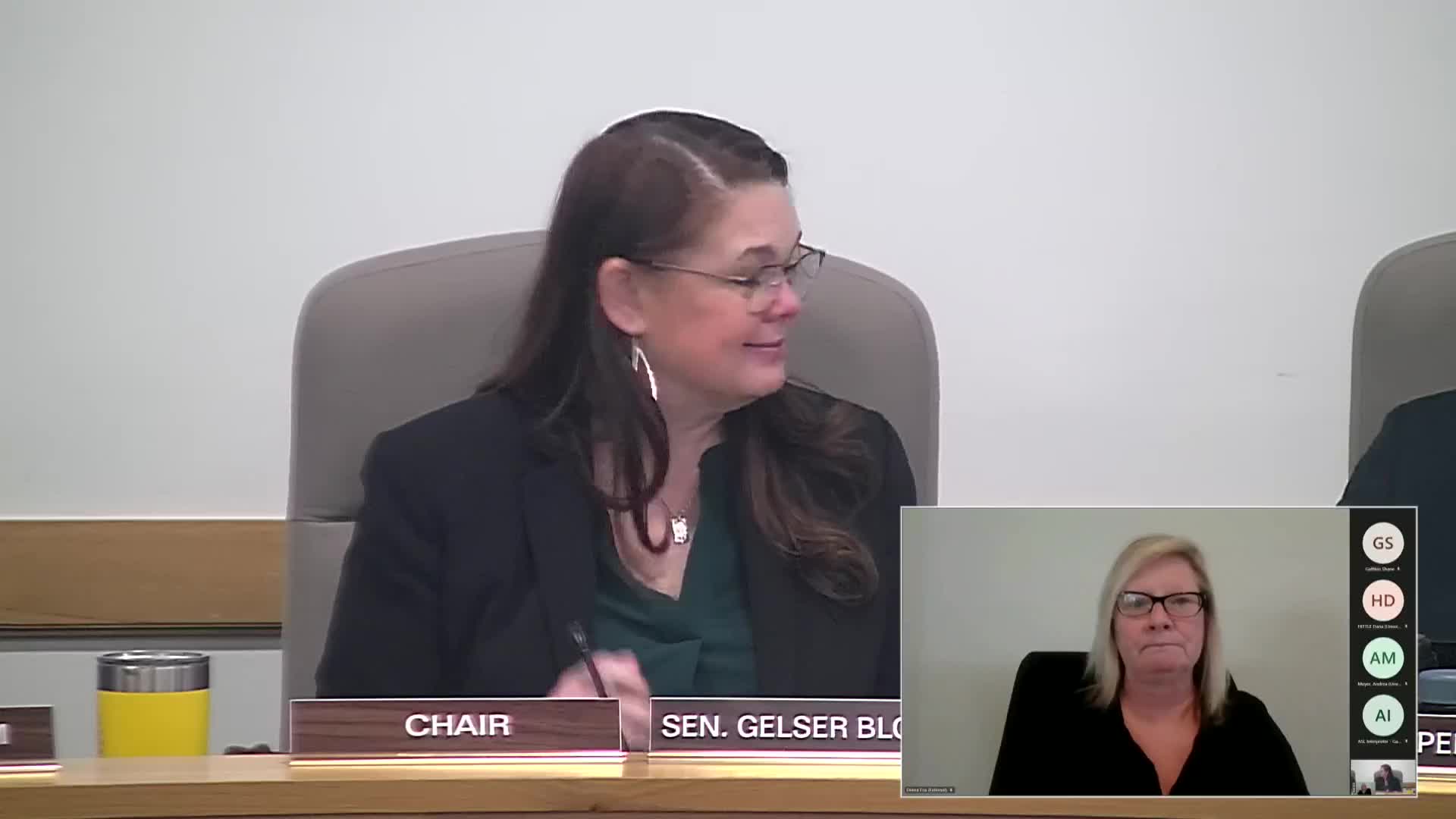Oregon hearing considers SB 811 to require early inspections, tighten memory-care standards
Get AI-powered insights, summaries, and transcripts
Subscribe
Summary
Senate Committee on Human Services heard testimony on Senate Bill 811 on March 18; the bill would require initial inspections within 120 days of licensing, strengthen memory-care administrator qualifications and allow two‑year renewals for high-performing adult foster homes while keeping at least annual onsite checks, officials said.
Sen. Gelser Bluen, chair of the Senate Committee on Human Services, opened a public hearing March 18 on Senate Bill 811, a Department of Human Services-backed measure that agency officials said would require earlier regulatory oversight of newly licensed adult foster homes and residential care facilities.
Carissa Neufeld, Deputy Director for Safety and Regulatory Oversight at the Office of Aging and People with Disabilities within the Oregon Department of Human Services, told the committee the bill "would strengthen licensing and safety measures for both adult foster homes and residential facilities" and aim "to enhance early oversight, prevent compliance failures, and ensure the safety and well-being of individual residents in our community based care settings." The agency said the measure is part of the governor's recommended budget.
Senate Bill 811 would make four principal changes, according to agency testimony: require an initial inspection within 120 days after an initial license is issued; require review of key policies and procedures before issuing a license; allow two‑year renewals for adult foster homes that have maintained "substantial compliance" for three consecutive years while keeping at least annual onsite inspections for those homes; and impose minimum administrator qualifications and stronger elopement and emergency protocols for memory-care communities.
Why it matters: Agency witnesses and family advocates said current practice can leave newly licensed homes operating for months to more than a year before regulators return, a gap they said increases risks for residents. Neufeld said current law allows a facility to be licensed and then not inspected for 12 to 24 months unless a complaint is filed, leaving ODHS in a reactive posture.
Fiscal and operational details: The Office of Aging and People with Disabilities requested $3,730,000 to fund 19 new positions staggered across the biennium; the Office of Developmental Disability Services requested $3,950,000 to make 15 licensing staff permanent. ODHS officials said the staffing additions would support the proposed 120‑day inspections and other oversight changes.
Provider and labor reaction: The Oregon Health Care Association (Libby Battlin) said OHCA is generally neutral but raised technical concerns about the bill's requirement for a written succession plan and asked that the long‑term care administrators board be involved before rules change administrator qualifications. John Grimm, who operates a specialized adult foster home and is SEIU Local 503 chapter president, supported early visits but urged inspectors prioritize compliance assistance over punitive enforcement. Courtney Graham of SEIU Local 503 said the term "substantial compliance" needs clearer definition to avoid uneven enforcement.
Ombudsman and advocacy concerns: Fred Steele, the state long‑term care ombudsman, and AARP Oregon (Andrea Meyer) urged caution about changing renewal timelines and about reliance on scheduled inspections. They cited a recent Safety Oversight and Quality Unit rapid‑response report and noted that scheduled renewals, changed through collective bargaining in recent years, can allow operators of concern to prepare for inspections. AARP highlighted that the statute already defines "substantial compliance" but said internal application of that standard may be inconsistent.
Remaining issues and next steps: Providers, advocates and the department signaled areas for follow-up language, including clearer definitions of "substantial compliance," the scope of required succession planning, and how memory‑care administrator qualifications would be developed and implemented. Chair Gelser Bluen closed the SB 811 hearing and said the committee will hold additional public hearings to refine the proposal.
